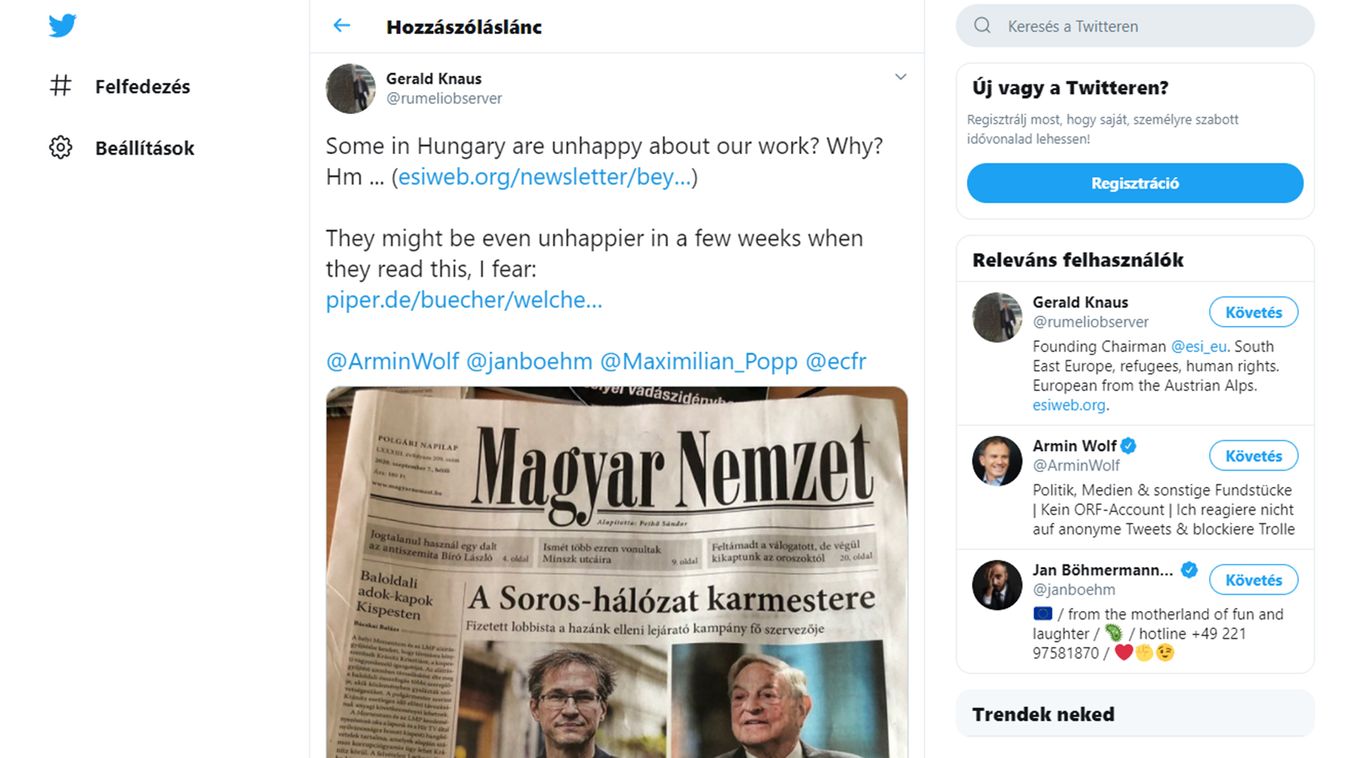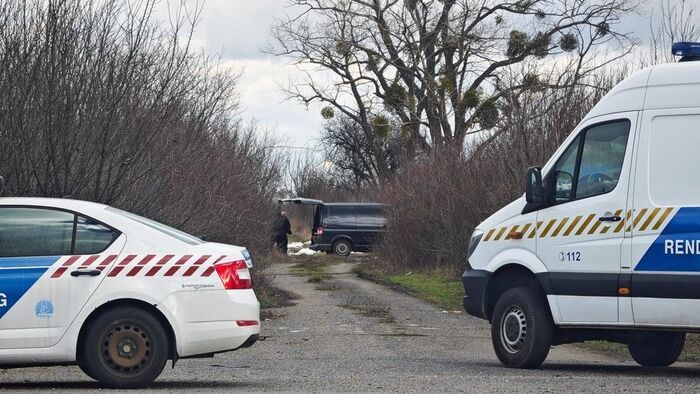“Some in Hungary are unhappy about our work? Why? Hm ...”— wrote the ESI chairman cynically on Twitter in response to our article on Monday. Gerald Knaus also linked a photo of Magyar Nemzet’s front page to his post. Knaus concurrently confirmed the core of our article when he tagged a slew of western journalists. It wasn’t in vain then that we described him as having “the power to maneuver the waters of the mainstream media like few others.” This time Knaus called on Armin Wolf, Austrian journalist, Maximilian Poppot, a writer at Spiegel, Patrick Kingsley, and Steven Erlanger, a New York Times correspondent, to support his social media post.
Gerald Knaus included a threatening comment in his tweet: “They might be even unhappier in a few weeks when they read this, I fear”—linking his upcoming book on migration coming out in October.
On Monday we revealed that we had successfully identified the individual responsible for managing and executing anti-Hungarian campaigns as part of the Soros network. In the next few days our paper will reveal in a series of articles, just by what methods and tools Gerald Knaus, president of the European Stability Initiative, has in the past few months, and still is, attacking Hungary.























Szóljon hozzá!
Jelenleg csak a hozzászólások egy kis részét látja. Hozzászóláshoz és a további kommentek megtekintéséhez lépjen be, vagy regisztráljon!